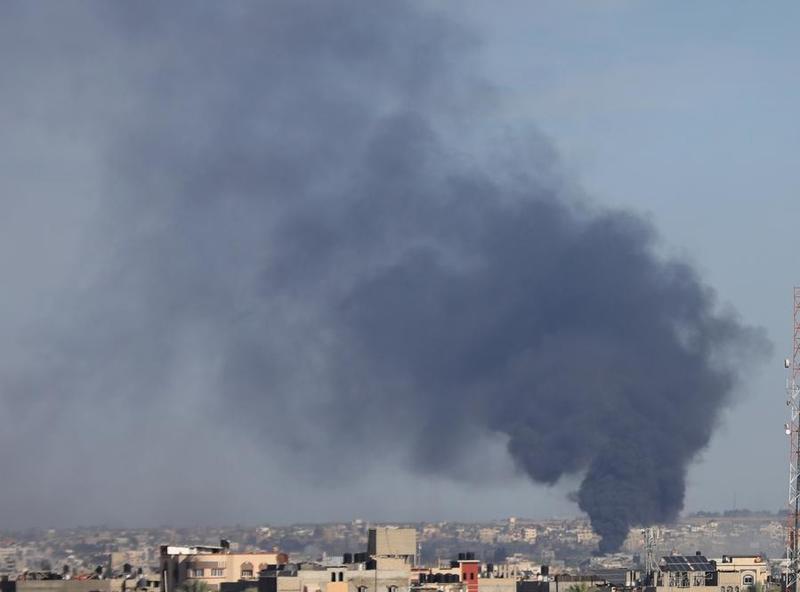 Smoke rises following an Israeli airstrike in the southern Gaza Strip city of Khan Younis, Jan 13, 2024. (PHOTO / XINHUA)
Smoke rises following an Israeli airstrike in the southern Gaza Strip city of Khan Younis, Jan 13, 2024. (PHOTO / XINHUA)
The Red Sea tensions have escalated rapidly since the United States and the United Kingdom launched air strikes against Houthi military targets in Yemen on Thursday. In light of this, Sunday's joint statement issued by China and the Secretariat General of the Arab League was a sharp rebuke of their actions even if the two sides did not say so directly.
The statement, issued in Cairo during Chinese Foreign Minister Wang Yi's visit to Egypt, expressed the two sides' "deep concern" over the recent escalation of the situation in the Red Sea and stressed the need to respect the sovereignty and territorial integrity of Yemen while ensuring the safety of international commercial shipping in the Red Sea.
The Red Sea crisis is clearly a spillover consequence of the ongoing Israel-Palestine conflict, and China and Egypt called for an immediate and comprehensive cease-fire and the cessation of all violence against civilians and violations of international law and international humanitarian norms. They called on the members of the UN Security Council to heed the call of Arab, Islamic and other countries that oppose Israel's ongoing war against civilians in Gaza, and to earnestly shoulder their responsibility to take actions to fully and effectively implement the relevant resolutions of the UN Security Council and the UN General Assembly on the situation in Gaza and the Palestine-Israel conflict.
Indeed, allowing the situation to escalate further will only exacerbate the crisis. Since last month, the Red Sea as an important international trade route for goods and energy has been under constant threat as the Houthi militia has intensified its attacks on "Israel-linked" ships using the waterway, demanding an end to Israel's military actions in Gaza.
While the Houthi militia must stop targeting commercial ships in the Red Sea, the sovereignty and territorial integrity of Yemen must be respected. The US-led attacks on Houthi targets have only complicated the situation and ratcheted up tensions in the region.
The UNSC has never authorized any country to use force against Yemen, a move that will obviously "add fuel to the fire" in the Red Sea and raise the overall security risks in the region.
The flare-up of the Red Sea tensions reinforces the urgency for the world community to step up efforts to put an end to the ongoing Israel-Palestine conflict, which has now been raging for 100 days.
Both restraint and diplomatic efforts are needed to bring an end to the conflict as soon as possible to prevent the humanitarian crisis in Gaza from worsening and the conflict from escalating further.


